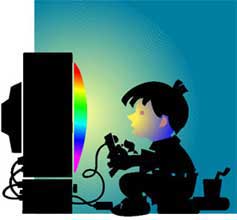Creativity and Nintendo
The popularity of the several Nintendo game systems that were released in the 1990s had profound effects on my creative mind. I used to draw pictures of superheroes fighting villains and dinosaurs attacking cities whenever TV seemed unappealing. These ideas I used for my doodles were mostly a result of the amount of Nintendo 64 I played at a young age. Games like Star Fox, Rampage, and Super Smash Brothers, as their titles may suggest, are packed with colorful and unique characters and environments that would captivate any seven-year-old American boy. My relationship with these games was so intimate that I began drawing pictures of my favorite characters at school and eventually in my room while doing homework. Consistently practicing my artwork every day (out of sheer enjoyment, I might add) so that I could draw the characters just right, my skills developed to a point where I could draw Donkey Kong, Star Fox, and Mario better than the the older kids.
As a result of this newly developed talent, doodling became a hobby in which I indulged whenever I was not watching TV or playing video games. I’m still pretty good at drawing Spider-man and Medieval Dragons, and I owe this to Nintendo. Countless hours of flying through space and battling giant turtles inspired me to start drawing and opened my creative mind. In my last two Archives of Childhood, I’ve asserted the importance parents taking the time to observe what electronic media their kids are indulging in and then determining how often they should indulge. Now, I have proved how important it is for parents to think about the positive effects of at least some exposure to video games. Some children may have creativity hidden within them, and video games may help bring them out.


